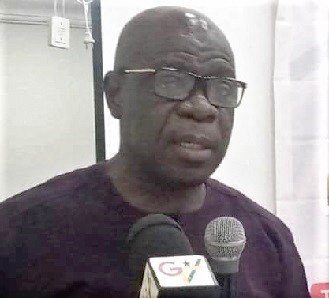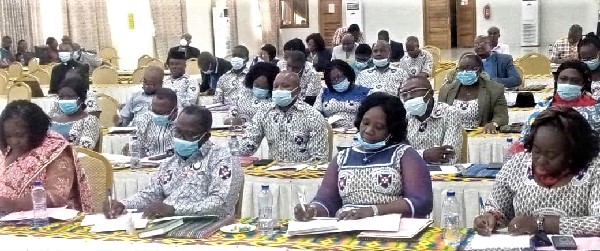
22,000 can’t go to school in spite of free SHS
In spite of the free senior high school (SHS) policy of the government, 22,000 students offered admission to SHS each year are unable to go to school.
This is because their parents are not capable of buying them chop boxes, trunks and other basic needs to take up the admission offered them.
The revelation was made by a Deputy Director-General of the Ghana Education Service (GES), Anthony Boateng, at the fourth annual consultative meeting on education organised by the Presbyterian Church of Ghana (PCG) in Koforidua, the Eastern Regional capital, last Wednesday.
The four-day meeting, which brought together heads of second-cycle and tertiary educational institutions within the PCG and presbytery chairpersons was to discuss effective ways and strategies of managing the church's educational institutions.
It was also to generally look at the broader perspective of disciplinary practices and infrastructure development in its educational institutions as a partner with government in the delivery of quality education in the country.
The meeting was on the theme: "Promoting academic excellence and moral uprightness in our educational institutions through religious discipline - Reflection on the past, the present and the future: The role of the Presbyterian Church and stakeholders".
Can't afford basic things
Mr Boateng said there were many parents whose yearly incomes were meagre for which reason they could not afford the basic things needed by their children offered admission to SHS, although it was free.
He, therefore, asked heads of SHS, to desist from collecting money from students to organise extra classes for them.
Extra classes
If the heads did that, Mr Boateng indicated, they would deny students who could not afford to pay for the extra classes access to quality education because tutors reserved some of the topical issues in subjects for the extra classes.
Apart from that, he said, some tutors also failed students who could not afford to pay for extra classes, and that made those students uncomfortable and also put them at a disadvantageous position.

"There are people in this country whose daily incomes are less than GH¢30, and under the free SHS, there are 22,000 qualified students who always cannot take up their places at SHS because they cannot buy chop boxes, trunks, and other basic needs for them to go to school. This is how serious the situation can be," he said.
Debts accumulation
On the accumulation of debts in some schools, including Presbyterian institutions, Mr Boateng said heads who were planning to retire or be reposted deliberately accumulated huge sums running into hundreds of thousands of cedis as debt to creditors.
He explained that the heads consciously credited items and took commissions before going away and that became accumulated debts to pay.
He explained that most often the heads requested quantities more than or even double what was needed because the more the quantity, the more commission the suppliers paid to them.
He called on heads to stop that practice.
PTA
With regard to parent-teacher associations (PTAs), he said although the noble aim was to enable parents and teachers to meet and discuss the academic progress of students, it had now become an institution for money collection.
Mr Boateng said parents willing to financially assist schools should do so, but the schools should not levy students.
He told the gathering that the GES would not accept heads of SHSs collecting money from students because they had not been mandated to do so.
The Moderator of the General Assembly of the PCG, Rt Rev. Prof. Joseph Obiri Yeboah Mante, for his part, commended the speakers, as well as the participants, for their contributions.
He encouraged them to continue the discussions to tap into more ideas and innovations to further improve Ghana's higher education.
Writer's email:
